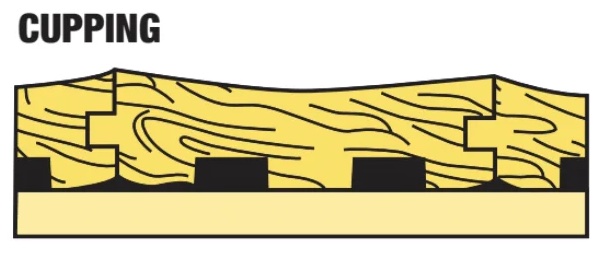
Hardwood flooring is a popular choice for many homeowners, but it is important to remember that it is sensitive to changes in humidity. Maintaining the proper humidity level is crucial for preserving the beauty and longevity of your hardwood floors. The ideal humidity for hardwood floors is between 35-55%. In this article, we will discuss the effects of both low and high humidity on hardwood flooring and how to find a balance to maintain the perfect humidity level for your floors.
Low humidity levels can have a significant impact on hardwood flooring. Hardwood floors are made from natural wood, which is a porous material that can absorb and release moisture as the humidity level changes. When humidity levels drop below 35%, the wood can become dry and brittle, leading to a variety of problems.
One of the most obvious effects of low humidity for hardwood floors is shrinkage. As the wood loses moisture, it will shrink, and the gaps between the boards will widen. This can cause the flooring to become uneven and can also lead to gaps between the flooring and the baseboards. In extreme cases, the flooring may even crack or split.
Additionally, when the humidity levels for hardwood floors are too low, it can cause cupping. Cupping occurs when the edges of the boards are higher than the center. This is caused by the wood shrinking more on the edges than in the center and clearly indicates that the flooring is not receiving enough moisture.

Another effect of low humidity on hardwood flooring is warping. Warping can occur when the wood becomes too dry and loses its shape. This can cause the flooring to buckle or become curved, making it difficult to walk on and potentially damaging the subfloor.
Lastly, low humidity can also cause the finish on the flooring to become dull and lose its shine. As the wood dries out, the finish can become brittle and lose its ability to reflect light. This can make the flooring look old and worn, even if it is relatively new.
High humidity levels can also have a significant impact on hardwood flooring. When humidity levels rise above 55%, the wood can absorb too much moisture, which can lead to a variety of problems.
One of the most common effects of high humidity for hardwood floors is expansion. As the wood absorbs moisture, it will expand, and the gaps between the boards will close. This can cause the flooring to become uneven; in extreme cases, the flooring may even buckle or rise.
High humidity can also lead to crowning. Crowning occurs when the center of the boards are higher than the edges. This is caused by the wood expanding more in the center than on the edges, and is a clear indication that the flooring is receiving too much moisture.

High humidity and hardwood floors can cause the finish to become sticky or discoloured. As the wood absorbs moisture, the finish can become tacky and lose its ability to reflect light. This can make the flooring look older, regardless of its age.
Another effect of high humidity on hardwood flooring is that it can cause the growth of mould or mildew on or under the flooring. When the air is damp, mould spores can thrive and grow; this can cause a musty smell and can be harmful to people with allergies or respiratory problems.
So, how can you maintain the perfect humidity level for your hardwood floors? The first step is to invest in a humidifier or dehumidifier. These devices can help you control the humidity level in your home and keep it within the recommended range. A hygrometer is another useful tool that can help you monitor the humidity level in your home. You can place it in various areas of your home to get a better idea of the overall humidity level.
Another way to control humidity levels is through proper ventilation. Make sure that your home has adequate ventilation to allow for the exchange of indoor and outdoor air. This can be achieved by opening windows, using exhaust fans, and ensuring that your attic and crawl spaces are well-ventilated.
It is also important to remember that certain activities in your home can contribute to increased humidity levels. Cooking, showering, and using a clothes dryer can all add moisture to the air. Try to use exhaust fans or open windows to help remove this excess moisture.
If you're installing new hardwood flooring, it is important to acclimate the wood to the humidity levels in your home before installation. Wood is a hygroscopic material, meaning it will absorb or release moisture in order to reach equilibrium with the surrounding air. So, it's important to let the wood adjust to your home's humidity level before installation; this will reduce the chances of cupping or crowning.
With the right tools and techniques, it is easy to maintain the perfect hardwood floor humidity levels and keep them looking great for years to come.

Our collection is of premium quality, extremely reliable, and each option promises to introduce an unmatched warmth to your space.